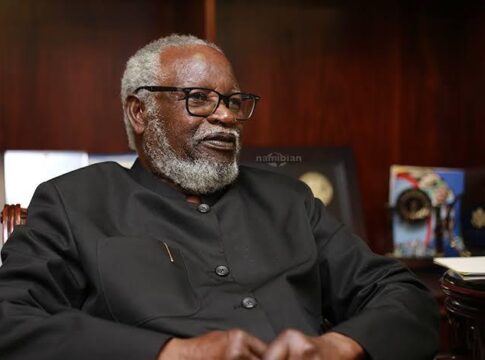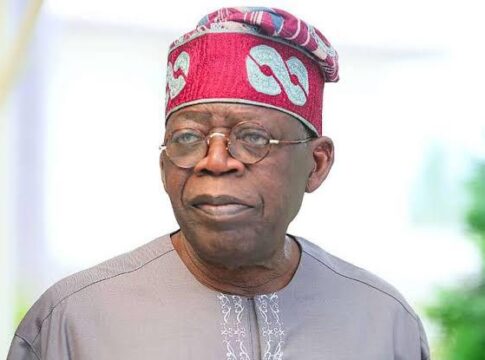Sam Nujoma, Namibia’s Founding Father, Dies at 95
Namibia is mourning the loss of its founding father, Sam Nujoma, a revered liberation icon who led the country to independence in 1990. The 95-year-old former president passed away Saturday night after weeks of hospitalization, according to President Nangolo Mbumba.
“The foundations of the Republic of Namibia have been shaken,” Mbumba said in a heartfelt statement. “He was the most gallant son of our land.” Nujoma had been hospitalized in Windhoek for three weeks due to ill health before succumbing to his illness.
Nujoma’s legacy is unparalleled in Namibia’s history. After spending nearly three decades in exile leading the South West African People’s Organization (SWAPO), he returned to oversee Namibia’s transition to democracy, serving as its first president for 15 years. Under his leadership, the nation emerged from a bitter independence war with stability and unity.
Legacy of Leadership
Nujoma played a pivotal role in healing the wounds of colonial rule and apartheid. “His leadership guided the process of national reconciliation after the deep divisions caused by war,” said political analyst Hendrick Tjiveze.
READ MORE: FG Approves ₦4.8bn for HIV Treatment, Protect Nigerians from Trump-Era Healthcare Cuts
Namibia’s journey to independence was arduous. Nujoma led SWAPO’s guerrilla campaign after South Africa refused to relinquish control of the territory, despite a 1966 UN resolution. “We started the armed struggle with only two sub-machine guns and two pistols,” Nujoma once recalled. Over two decades, SWAPO gained global recognition, ultimately securing Namibia’s freedom through negotiation.
In 1993, U.S. President Bill Clinton hosted Nujoma at the White House, calling him “the George Washington of his country.” Clinton praised his commitment to democracy, saying, “He is a genuine hero of the world’s movement toward freedom.”
While celebrated for his pragmatism and nation-building, Nujoma’s rhetoric often sparked controversy. At a 2000 UN conference, he described AIDS as a “man-made biological weapon,” drawing widespread criticism. He also denounced homosexuality, calling it a “foreign and corrupt ideology.”
Nujoma was also a staunch advocate for women’s empowerment. “There is no shortage of competent African women to lead the way forward,” he said. His vision materialized last year when Namibia elected its first female president, Netumbo Nandi-Ndaitwah.
From Humble Beginnings to a National Icon
Born in 1929 in rural northern Namibia, Nujoma was the eldest of 11 children. His early life was marked by poverty, herding cattle and farming to support his family. He attended a mission school but left early to work for South African Railways.
In 1959, Nujoma fled to Tanzania after being arrested during a political protest. He helped establish SWAPO in exile, becoming its first president in 1960. Over the next three decades, he tirelessly campaigned for Namibia’s liberation, forging alliances with countries like Algeria, North Korea, and Cuba.
Nujoma’s humility and determination defined his leadership. Reflecting on his life, he once said, “Others got their education while I led the struggle. I dedicated my life to my country’s liberation.”
Nujoma’s influence extended beyond independence. His leadership laid the foundation for Namibia’s democratic constitution, which included protections for minority rights. Even his critics acknowledged his inclusive governance, which brought together leaders from diverse backgrounds.
Namibia will remember Sam Nujoma as more than a politician. He was a father figure who steered his nation through its darkest times to a future of hope. “His contribution to Namibia is immeasurable,” said President Mbumba.
Nujoma’s passing marks the end of an era, as Namibia and Africa bid farewell to one of the last liberation leaders of the 20th century. His funeral arrangements are yet to be announced, but tributes continue to pour in from around the world.




